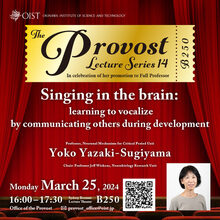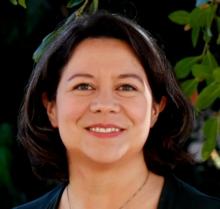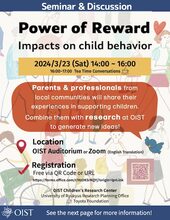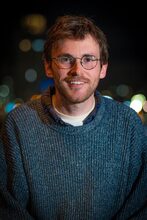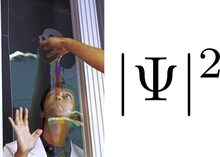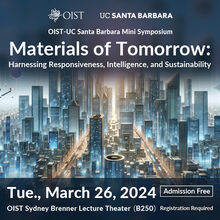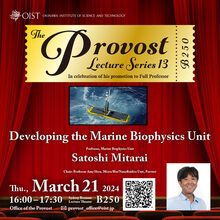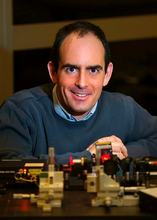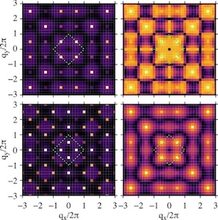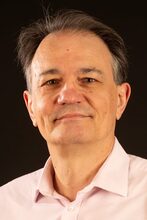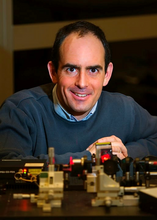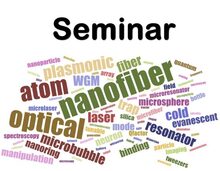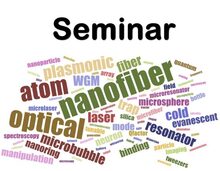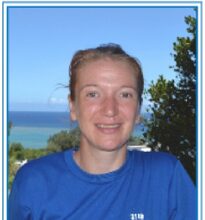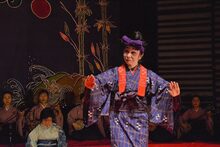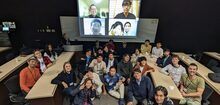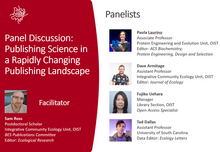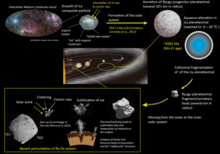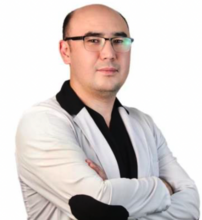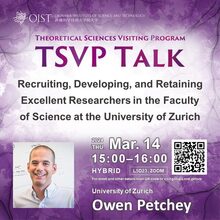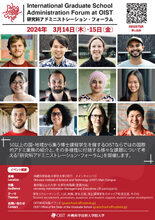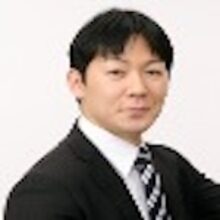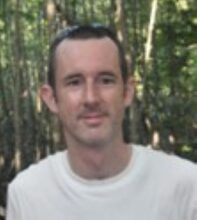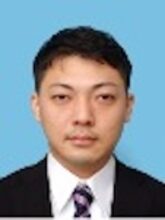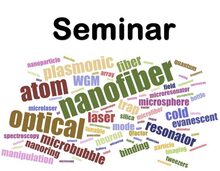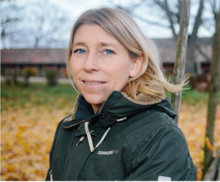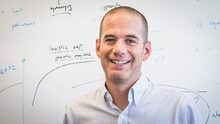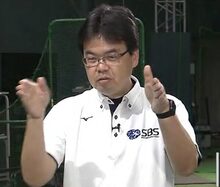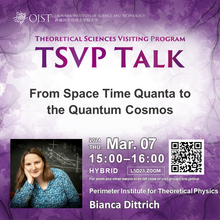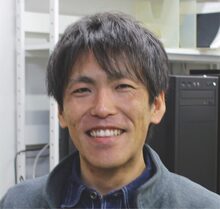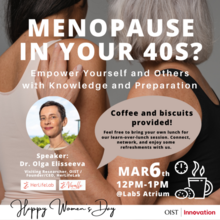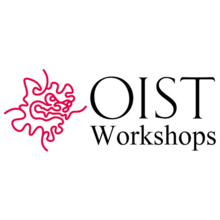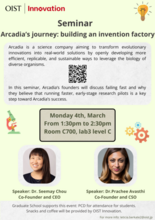Past Events
The Provost Lecture Series 14
"Singing in the brain: learning to vocalize by communicating with others during development" Prof. Yoko Yazaki-Sugiyama, Neuronal Mechanism for Critical Period Unit
Seminar"Using bioinspired polypeptoids to understand how chain shape influences self-assembly and water dynamics"Rachel Segalman
Language: English
TSVP Workshop: The Future of Response Diversity and Ecosystem Stability
linked to TSVP Thematic Program: Response Diversity and Ecosystem Stability (TP23RD)
"The Power of Reward: Impact on Child Behavior" by OIST Children's Research Center
Language: Japanese with English interpretation
Audience: Parents and professionals supporting children in local community, OISTers
Research talk + panel discussion with community members: 14:00-16:00
Teatime gathering:16:00-17:00
"How can we measure the diversity of ecological interactions in the real world?" by Fredric Windsor (TSVP Seminar)
Seminar, as part of Thematic Program on Response Diversity Language: English (no interpretation). Target audience: Students and Researchers from related fields. Freely accessible to all OIST members and guests without registration (also via Zoom).
Windows, Bubbles, Quantum-Schmantum
A physics lecture for non-physicists. Title: Windows, Bubbles, Quantum-Schmantum. Speaker: Yasha Neiman.
OIST Innovation open-hours
OIST Innovation opens its doors to OIST community every Friday .
Talk: From Synapses to Students: One Neuroscientist’s Professional Journey Making Connections in STEM
During this brownbag session, Dr. Tan will describe her professional journey from graduate school studying neuroscience to her current position in higher education leadership. She will discuss some of the work that she does and will offer advice to trainees interested in further exploring career opportunities in the teaching / higher education administration space. Dr. Tan will be joined by Dr. Ian McLachlan, a Scientist at the Boston area-based Rgenta Therapeutics , who will similarly describe his career trajectory and his work in the biotech industry. Dr. McLachlan earned his PhD in Neurobiology at Harvard University and completed a postdoctoral fellowship in neuroscience at MIT before beginning his current role at Rgenta.
[Registration Deadline] OIST-UC Santa Barbara Mini Symposium "Materials of Tomorrow: Harnessing Responsiveness, Intelligence, and Sustainability"
Registration deadline for OIST-UC Santa Barbara Mini Symposium "Materials of Tomorrow: Harnessing Responsiveness, Intelligence, and Sustainability"
The Provost Lecture Series 13
[Seminar] 'Nanoaperture Optical Tweezers: From single proteins to quantum emitters' by Prof Gordon
Title: Nanoaperture Optical Tweezers: From single proteins to quantum emitters
Speaker: Dr Reuven Gordon , Ph.D., P. Eng., Professor, Department of Electrical and Computer Engineering, University of Victoria, Canada JSPS Invitational Fellowships for Research in Japan
[Seminar] Prof. Karlo Penc "Crystalline phases and devil's staircase in qubit spin ice"
Target audience: Interns, Students, PostDocs, and those who are interested in the same research field. Language: English
[Seminar] “Axonal transport disfunctions in neurodegenerative diseases” by Prof. Giampietro Schiavo
[Seminar] “Axonal transport disfunctions in neurodegenerative diseases” by Prof. Giampietro Schiavo
[Lecture] 'Analytical Methods for Near-Field Optics' by Prof Gordon
Title: Analytical Methods for Near-Field Optics
Speaker: Dr Reuven Gordon , Ph.D., P. Eng., Professor, Department of Electrical and Computer Engineering, University of Victoria, Canada JSPS Invitational Fellowships for Research in Japan
[Seminar] 'Atom-interferometry based Quantum gravimeter for field applications' by Dr Ravi Kumar
Title: Atom-interferometry based Quantum gravimeter for field applications Speaker: Dr. Ravi Kumar, Atomionics Pte, Ltd, Singapore Ltd, Singapore
Okinawa Sustainable City Summit 2024
Join us at the Okinawa Sustainable City Summit 2024
[Seminar] Analog quantum simulation for partial differential equations: Schrodingerisation and other dilation methods
Speaker: Prof. Nana Liu, Shanghai Jiao Tong UniversityQuantum simulators were originally proposed to be helpful for simulating one partial differential equation (PDE) in particular – Schrodinger’s equation. If quantum simulators can be useful for simulating Schrodinger’s equation, it is hoped that they may also be helpful for simulating other PDEs. As with large-scale quantum systems, classical methods for other high-dimensional and large-scale PDEs often suffer from the curse-of-dimensionality (costs scale exponentially in the dimension D of the PDE), which a quantum treatment might in certain cases be able to mitigate. To enable simulation of PDEs on quantum devices that obey Schrodinger’s equations, it is crucial to first develop good methods for mapping other PDEs onto Schrodinger’s equations.
[Seminar] 'Ultracold atoms carrying orbital angular momentum in lattices of rings' by Dr Ahufinger
Title: Ultracold atoms carrying orbital angular momentum in lattices of rings
Speaker: Professor Verónica Ahufinger, Universitat Autònoma de Barcelona, Spain
[Seminar] Dr. Kimberly Remund "SCGA for Spin-1 Magnets"
Target audience: Interns, Students, PostDocs, and those who are interested in the same research field. Language: English
[QUAST Seminar] Aaron Poole: Thermodynamics of accelerating AdS_4 black holes from the covariant phase space
Thermodynamics of accelerating AdS_4 black holes from the covariant phase space
Aaron Poole
Kyung Hee University, South Korea
The 1st International Workshop on Cognitive Neurorobotics
The 1st International Workshop on Cognitive Neurorobotics March 18 - 19, 2024 @OIST Conference Center meeting rooms #1, 2, 3
Sounds of the Ryukyus 2024
Admission free. Registration required.
Neural Computation Workshop 2024 (FY2023)
Neural Computation Unit will hold a retreat/reunion at OIST seaside house. If you are interested in joining, please contact ncus@oist.jp
Panel Discussion: Publishing Science in a Rapidly Changing Publishing Landscape (with TSVP visitors)
Seminar, as part of Thematic Program on Response Diversity Language: English (no interpretation). Target audience: General audience / everyone at OIST and beyond. Freely accessible to all OIST members and guests without registration (also via Zoom).
Origin, evolution, and dynamics of the asteroid Ryugu ~Perspectives from the comprehensive geochemical approach~
Speaker:Prof. Katsura Kobayashi (Institute for Planetary Materials, Okayama University)
[Seminar] Clinical Microbiome by Batyr Osmonov
Seminar by Dr. Batyr OSmonov, MD
TSVP Talk: "Recruiting, Developing, and Retaining Excellent Researchers in the Faculty of Science at the University of Zurich" by Owen Petchey
Seminar, as part of Thematic Program on Response Diversity Language: English (no interpretation). Target audience: General audience / everyone at OIST and beyond. Freely accessible to all OIST members and guests without registration (also via Zoom).
Seminar - What Nature Photonics looks for
The OIST Center for Quantum Technologies (OCQT) cordially invites to a seminar featuring:
Speaker: Noriaki Horiuchi, PhD
Affiliation: Senior Editor, Springer Nature, Japan
Title: What Nature Photonics looks for
We look forward to your participation.
International Graduate School Administration Forum at OIST - 14-15 March 2024
The GS-hosted International Graduate School Administration Forum at OIST planned for 14 th and 15 th March. The Forum will serve as an arena where like-minded individuals in the academic administrative field will gather to exchange ideas and develop a deeper understanding of successfully running an international graduate school in Japan.
[Seminar]Prof. Yutaka Akagi "CP2 triple-Q state in the SU(3) Kondo lattice model"
Target audience: Interns, Students, PostDocs, and those who are interested in the same research field. Language: English
@font-face {font-family:"MS Mincho"; panose-1:2 2 6 9 4 2 5 8 3 4; mso-font-alt:"MS 明朝"; mso-font-charset:128; mso-generic-font-family:modern; mso-font-pitch:fixed; mso-font-signature:-536870145 1791491579 134217746 0 131231 0;}@font-face {font-family:"Cambria Math"; panose-1:2 4 5 3 5 4 6 3 2 4; mso-font-charset:0; mso-generic-font-family:roman; mso-font-pitch:variable; mso-font-signature:-536870145 1107305727 0 0 415 0;}@font-face {font-family:"\@MS Mincho"; panose-1:2 2 6 9 4 2 5 8 3 4; mso-font-charset:128; mso-generic-font-family:modern; mso-font-pitch:fixed; mso-font-signature:-536870145 1791491579 134217746 0 131231 0;}p.MsoNormal, li.MsoNormal, div.MsoNormal {mso-style-unhide:no; mso-style-qformat:yes; mso-style-parent:""; margin-top:2.5pt; margin-right:0cm; margin-bottom:2.5pt; margin-left:0cm; mso-para-margin-top:.5gd; mso-para-margin-right:0cm; mso-para-margin-bottom:.5gd; mso-para-margin-left:0cm; text-align:justify; text-justify:inter-ideograph; mso-pagination:none; font-size:11.0pt; font-family:"Times New Roman",serif; mso-fareast-font-family:"MS Mincho"; mso-bidi-font-family:"Times New Roman"; mso-bidi-theme-font:minor-bidi; mso-font-kerning:1.0pt; mso-ansi-language:EN-US;}a:link, span.MsoHyperlink {mso-style-noshow:yes; mso-style-priority:99; color:blue; text-decoration:underline; text-underline:single;}a:visited, span.MsoHyperlinkFollowed {mso-style-noshow:yes; mso-style-priority:99; color:purple; mso-themecolor:followedhyperlink; text-decoration:underline; text-underline:single;}p {mso-style-noshow:yes; mso-style-priority:99; mso-margin-top-alt:auto; margin-right:0cm; mso-margin-bottom-alt:auto; margin-left:0cm; mso-pagination:widow-orphan; font-size:12.0pt; font-family:"Times New Roman",serif; mso-fareast-font-family:"Times New Roman";}.MsoChpDefault {mso-style-type:export-only; mso-default-props:yes; font-size:11.0pt; mso-ansi-font-size:11.0pt; mso-bidi-font-size:11.0pt; mso-fareast-font-family:"MS Mincho"; mso-bidi-font-family:"Times New Roman"; mso-bidi-theme-font:minor-bidi; mso-ligatures:none; mso-ansi-language:EN-US;}div.WordSection1 {page:WordSection1;}
"Exploring stability in ecological systems that include species with unstable dynamics" by Mike Fowler (TSVP Seminar)
Seminar, as part of Thematic Program on Response Diversity Language: English (no interpretation). Target audience: General audience/everyone at OIST and beyond. Freely accessible to all OIST members and guests without registration (also via Zoom).
QG group meeting: Subhajit Mazumdar
QG group meeting. Speaker: Subhajit Mazumdar. Title: "Gravitostatic Love Numbers from Membrane Paradigm at large D".
Potential of Diamond Quantum Sensors
OIST Center for Quantum Technologies Colloquium: Potential of Diamond Quantum Sensors
Prof. Mutsuko Hatano, Professor, Tokyo Institute of Technology
[Seminar] Dr. Yuki Amari "Domain-wall skyrmions in chiral magnets"
Target audience: Interns, Students, PostDocs, and those who are interested in the same research field. Language: English
Workshop: Designing Inclusive STEM Training Environments
This interactive workshop will introduce approaches to facilitate inclusion, equity, and belonging in classroom, laboratory, and institutional training contexts. Workshop attendees will leave this session equipped with knowledge of evidence-based practices to promote equity, inclusion, and belonging and ideas for how to implement some of those practices within their local training environments.
[Seminar] 'Dipolar quantum gases: From rotons to supersolids' by Dr Manfred Mark
Title: Dipolar quantum gases: From rotons to supersolids
Speaker: Dr. Manfred Mark, Institut für Experimentalphysik, Universität Innsbruck, Austria
Seminar "Tropical Cyclone Projections using Environmental Proxies and Statistical-Dynamical Downscaling" by Professor Suzana J. Camargo
[Speaker] Professor Suzana J. Camargo, Lamont-Doherty Earth Observatory, Columbia University
"Exploring relevance and reliability for species groups in ecological networks" by Anna Eklöf (TSVP Seminar)
Seminar, as part of Thematic Program on Response Diversity Language: English (no interpretation). Target audience: Students and Researchers from related fields. Freely accessible to all OIST members and guests without registration (also via Zoom).
"Temporal variability in populations and communities" by Tad Dallas (TSVP Seminar)
Seminar, as part of Thematic Program on Response Diversity Language: English (no interpretation). Target audience: Students and Researchers from related fields. Freely accessible to all OIST members and guests without registration (also via Zoom).
"Understanding and predicting the stability of ecological systems" by Owen Petchey (TSVP Seminar)
Seminar (40 mins), as part of Thematic Program on Response Diversity Language: English (no interpretation). Target audience: Students and Researchers from related fields. Freely accessible to all OIST members and guests without registration (also via Zoom).
[Seminar] "Understanding and shaping implicit brain functions that support physical and mental skills in sports" by Dr. Makio Kashino
Speaker: Dr. Makio KASHINO (Kashino Diverse Brain Research Laboratory, NTT Communication Science Laboratories)
Title: Understanding and shaping implicit brain functions that support physical and mental skills in sports
TSVP Talk: "From Space Time Quanta to the Quantum Cosmos" by Bianca Dittrich
TSVP Talk Language: English (no interpretation). Target audience: General audience / everyone at OIST and beyond. Freely accessible to all OIST members and guests without registration (also via Zoom).
[Seminar] "Evolutionary losses of photosynthesis in eukaryotic microalgae" by Prof. Ryoma Kamikawa
Speaker: Prof. Ryoma Kamikawa, Graduate School of Agriculture, Kyoto University
Inclusive Communication Symposium 2024
C-Hub’s Annual Symposium brings together bold ideas and innovative thinkers to explore themes that enhance our ability to engender excellence through inclusion. Each year, we focus on a specific topic (2021: Inclusive Mentoring; 2022: Inclusive Leadership) to invite the broader community to share their work, insights, and practices.
MENOPAUSE IN YOUR 40S? Empower Yourself and Others with Knowledge and Preparation
Join us to gain insights and strategies for navigating the transformative journey of menopause. Learn how to understand and manage its effects while fostering supportive communities for women. Coffee and biscuits are provided! Feel free to bring your own lunch for our learn-over-lunch session. Connect, network, and enjoy some refreshments with us.
OIST Workshop "Sensorimotor Circuits for Limb Control"
OIST Workshop | Website | Main organizer: Yutaka Yoshida (Neural Circuit Unit) | OIST members are welcome to attend all scientific sessions. Meals are closed sessions for registered participants only.
Seminar: Arcadia’s journey, building an invention factory
Meet Arcadia and learn about their journey as a science company.
Kyushu University x OIST Joint Event - What's your story?
Kyushu University & OIST Joint Research PR Seminar "What's your story?"
Seminar: "Evolution as a shortcut to useful inventions" by Arcadia Science
Seminar is for OIST community.




